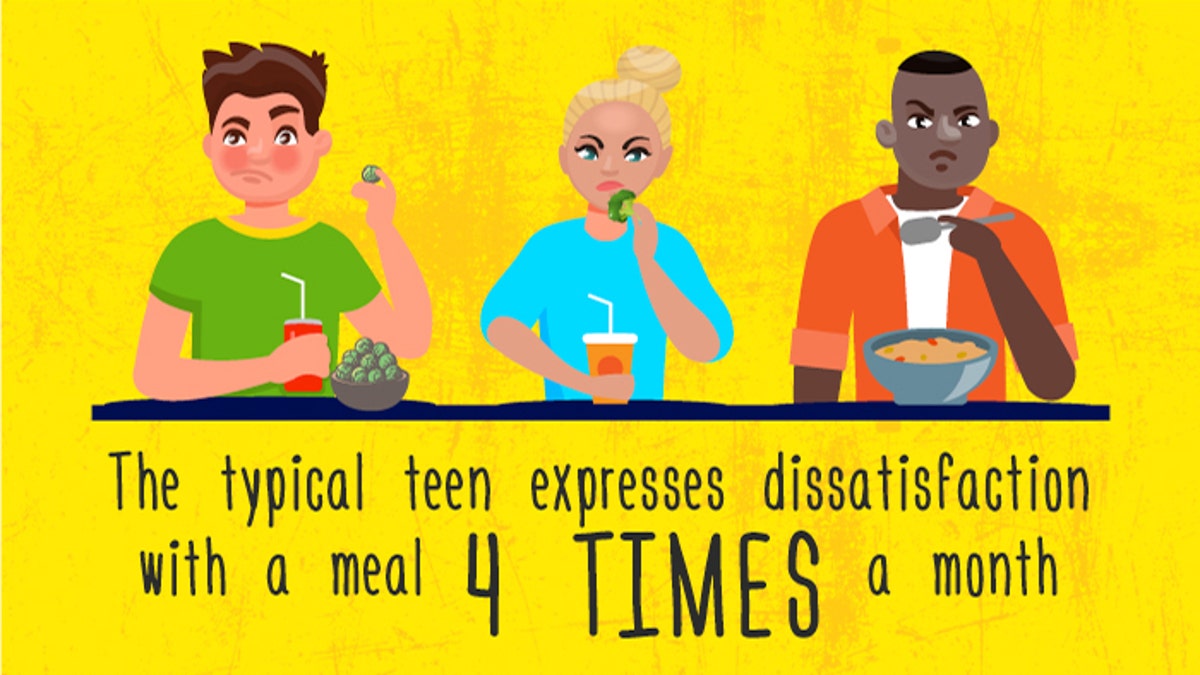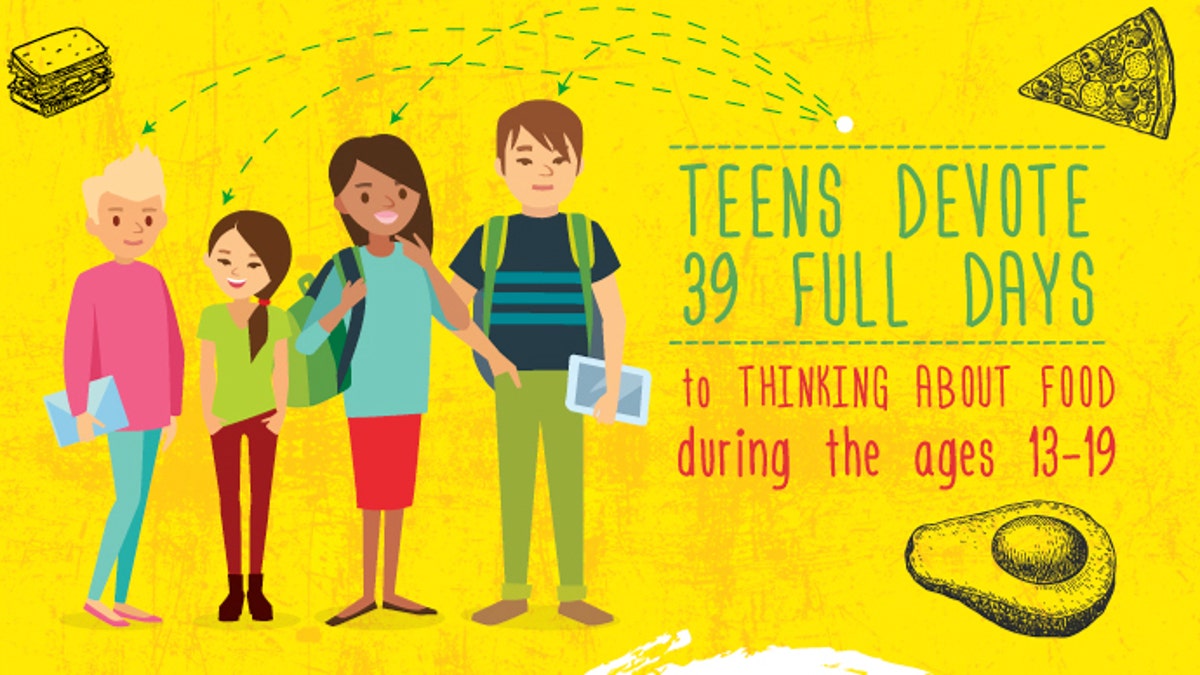
The average American kid thinks about food for 945 hours during the entirety of his/her teenage years — or a little over 39 solid days. (iStock)
Hungry American teenagers spend nearly 1,000 hours thinking about food throughout their teen years, according to new research.
A new study of 2,000 families found the average 13- to 19-year-old spends almost 135 hours per year thinking about food and what the next meal will be.
Over seven years of the typical teenage lifespan, young Americans will rack up 945 hours, or 39 solid days, with food on the brain.
The research, commissioned by Farm Rich, a frozen snack and appetizer brand, found young people are becoming more passionate and vocal about food, and are often interested in family meal planning and routines.
In fact, parents surveyed by OnePoll indicated that 30 percent of the weekly grocery bill is driven by teens' preferences and eating behaviors.
MCDONALD'S CUSTOMER ARRESTED FOR TAKING GOLF CART TO DRIVE-THRU WHILE DRUNK
Where is this interest in food coming from? As many as 46 percent of teens included in the study said they watch cooking shows to gain food inspiration, and seven in 10 said their parents are the biggest source of their food knowledge.
And it’s more than just a case of putting hunger at bay – 72 percent say food is something to enjoy and taste is something to appreciate, and as many as a fifth use cooking as a way to release their creativity.
That might be why you can find beautiful food images and recipe ideas when scrolling through teen’s social media pages with Facebook being the biggest online source of food inspiration for teens (27 percent), followed by YouTube (21 percent).
So are teens the new foodies? A quarter of teens admit to being experimental and adventurous in the kitchen and willing to try unique and different foods.
The research also found that food-obsessed teens are not only thinking about food but are very vocal about their food preferences too – 45 percent of moms and dads said their child will weigh in often on what the mealtime menu should look like.
“The wealth of information available today at our teens’ fingertips has led this generation to be more knowledgeable and inspired about food than ever before," said Farm Rich director of marketing Shannon Gilreath.
”Our research shows that over 90 percent of teens do actually enjoy family mealtime, which is a great opportunity for parents to engage with them even more when it comes to food choices and time spent together.”
5 OLD-SCHOOL SNACKS YOU COMPLETELY FORGOT EXISTED
Parents, however, still have their work cut out for them in catering to teenage palates, with over half (52 percent) of teenagers polled claiming meals served by their parents don’t always suit their tastes or dietary lifestyle. In fact, teenagers turn their noses up at the meals served at home four times a month on average (48 times per year).

The average teen will express disappointment with the family dinner an average of four times per month. (Farm Rich)
Perhaps it’s no surprise, then, that when it comes to choosing food for the family, parents say "meals I know my family will eat" is the single most important factor.
And it seems adults aren’t the only ones trying popular diets and eliminating certain foods to live a healthier lifestyle.
More than a quarter of teens (28 percent) have expressed interest in trying a new diet, and of those, most are interested in low-carb (38 percent), low-fat (35 percent) and vegetarian (32 percent) eating plans.
And these young people often move the goalposts – 28 percent have completely changed their diet, asking parents to switch up the menu, according to results.
5 ROOKIE MISTAKES TO AVOID WHILE GRILLING STEAK
Despite their changing diets and preferences, teenagers still enjoy time with the family and regularly reach for snacks in between meals.
More than 90 percent enjoy sitting down to a family meal with their favorite meal of the day being dinner (65 percent).

Teens cited cooking shows, social media, and their parents for inspiring their appreciation for food. (Farm Rich)
On average, teens snack two or three times per day with the most consumed munchies being chips, fruit, pizza and frozen snacks.
At dinner, the average teen also helps out in the kitchen three times a week, assisting mom or dad prepare the family meal.
Shannon Gilreath added: “The parent-teen relationship will always have its challenges but involving teens in the process of meal planning and prep is a simple way to let them know they’re being heard.
"Enjoying good food is a language we all speak, and it goes a long way in bonding families together, even during those tumultuous teenage years."
